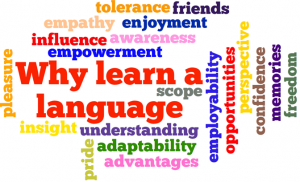 At the risk of sounding like a broken record, times have truly changed. Employability requires more than a university degree. In some companies, the ability to harness support for community-oriented projects, such as waste management is a major plus for a job applicant. Proposal and grant writing skills are highly valued. A multi-lingual job seeker, however, has the same opportunities, even an advantage, in any situation.
At the risk of sounding like a broken record, times have truly changed. Employability requires more than a university degree. In some companies, the ability to harness support for community-oriented projects, such as waste management is a major plus for a job applicant. Proposal and grant writing skills are highly valued. A multi-lingual job seeker, however, has the same opportunities, even an advantage, in any situation.
Chances for employment are increased when a resume reflects a second language. In pitching a sale, negotiating a contract, and going on business trips, a second language can be an enormous asset. Transportation and tourism, communication, and teaching are some examples of jobs where a second or third language is welcomed.
Traveling or living overseas even for short periods with a second language means knowing how to ask for directions. More important, one gets an insight into the country’s culture. Conversations with people at meetings or chatting about food and drink while at dinner in a restaurant can be fun. After all, lifelong friendships start with informal chats. Museum visits are more appreciated because of language.
Learning a foreign or a second language is good for the brain. It continuously improves brainpower in that the brain changes in a similar way as the body when exercise is a regular regimen. These new synapses may delay and even prevent onset of disease such as dementia.
Acquiring, learning a new language necessitates time, patience, and money but it is well worth the investment. It is the link that connects people in all places and on all occasions. It is a way to understand human beings in general and a foreign partner in a business or per personal relationship, in particular. Nelson Mandela said, “If you talk to a man in a language he understands, that goes to his head. If you talk to a man in his language, that goes to his heart.”
Written by Yoli P.- The Help